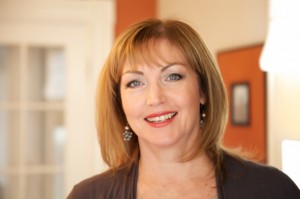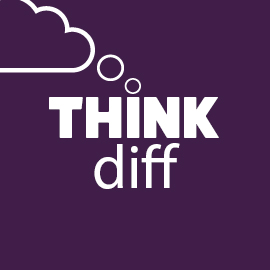Pandora MacLean-Hoover
Clinical Social Worker / Psychotherapist
 Careers in psychology vary greatly (even within a specific field)…one moment you could be discussing relationship issues with a patient, and then spend the next day hosting a cable television show. These are just some of the things that Pandora MacLean-Hoover has done so far throughout her psychology career. MacLean-Hoover is a clinical social worker in private practice, who currently works out of Newburyport and Cambridge, Massachusetts…and she's got a lot of insight to share regarding the social work aspect of a psychology-related profession.
Careers in psychology vary greatly (even within a specific field)…one moment you could be discussing relationship issues with a patient, and then spend the next day hosting a cable television show. These are just some of the things that Pandora MacLean-Hoover has done so far throughout her psychology career. MacLean-Hoover is a clinical social worker in private practice, who currently works out of Newburyport and Cambridge, Massachusetts…and she's got a lot of insight to share regarding the social work aspect of a psychology-related profession.
MacLean-Hoover says students often express to her an interest in becoming a psychotherapist in private practice, and she immediately responds by telling them it's something she loves to do. "It's funny how often I hear 'How do you do it, listening to people moan and groan all day,"' she adds. "That is SO not what I do!"
When it came time to make decisions regarding her career, MacLean-Hoover says she knew she wanted to work with people – not on them. She says there has never been a better time to go into the behavioral health field than now, noting, "Therapeutic psychotherapy models today are exciting – they offer hope for feeling better through thinking differently."
In fact, MacLean-Hoover is working on a new website called Think-diff.com. "I encourage people to set aside judgments, inviting them to embrace the words on my business card "Awareness/Choice: Thinking Differently." This is why she says she greet clients with the message: "You owe it to yourself to know why you think what you think and do what you do."
MacLean-Hoover says that if a student is interested in a career in psychology, there are many academic paths to follow, such as getting a PhD or PsyD to become a behavioral health and neurobehavioral specialist.
 Oftentimes, the journey to become a psychotherapist is a long adventure that involves a great deal of education and experience. MacLean-Hoover says that a common question from high school students is "How many years do I have to go to school to do what you do?"
Oftentimes, the journey to become a psychotherapist is a long adventure that involves a great deal of education and experience. MacLean-Hoover says that a common question from high school students is "How many years do I have to go to school to do what you do?"
MacLean-Hoover is a LICSW (Licensed Independent Clinical Social Work) – earning a BS in Education in 4 years from Boston University, and a Master's Degree in Social Work (MSW) with a "clinical track" that took 2-3 years to complete. She also finished 100 hours of Post-Master's Clinical Supervision.
"A social worker may earn 1 hour for every 35 hours we work weekly in a clinical setting," says MacLean-Hoover. "So, this may take 2 ½ to 3 years to reach 100!"
Private practice (in Massachusetts) requires a minimum of a Master's-level degree, says MacLean-Hoover, which she notes is combined with extensive clinical experience, accompanied by supervision. She also notes that earning Master's degrees in several areas of concentration, combined with clinical requirements may meet state guidelines for licensure, and are often necessary for professionals to work for themselves.
"It took me 10 years to satisfy requirements to be eligible to take the LICSW licensing exam," she adds. "It felt like I was looking at a dim light at the end of a long tunnel, but the light shown brighter with every course and clinical internship!"
MacLean-Hoover says she has experienced many rewarding moments in private practice, and often feels honored and humbled in the work that she does. "I compliment my clients for seeking out psychotherapy and their willingness to explore their presenting issues," she says. "Clients appreciate my saying, 'I work for you. You are the expert on yourself. I can never know you better than you know yourself.'"
With an entrepreneurial, creative spirit, MacLean-Hoover has also hosted and produced a cable television production called "Uknow What Uknow" from 2008 to 2010 – a show about confident living that steps outside of her therapy work, and focuses on sending positive messages to viewers. She also conducts therapeutic workshops at Destination Location Retreats for women and couples.
MacLean-Hoover notes that her field is rapidly changing, and advancements in technology becoming more prevalent in psychology work just may have something to do with it. While she does not do online counseling, she is seeing an increase in such services. "Phone therapy is not covered by most insurance companies," she says. "However, I maintain connection (appointments and/or a quick hello) with clients through phone contact, email and texting."
MacLean-Hoover is currently taking advantage of changes in technological communication to expand her reach with clients. "I am now developing Consumer Health Technology – Psychotherapy Apps, to make aspects of my therapeutic models available to more people."
Pandora offers the following advice for a student interested in becoming a psychotherapist: "Dare to dream! Do what you love!" She also stresses that the most reliable resources are people who are already in the profession: "Seek them out, request informational interviews, shadow them and ask lots of questions."






